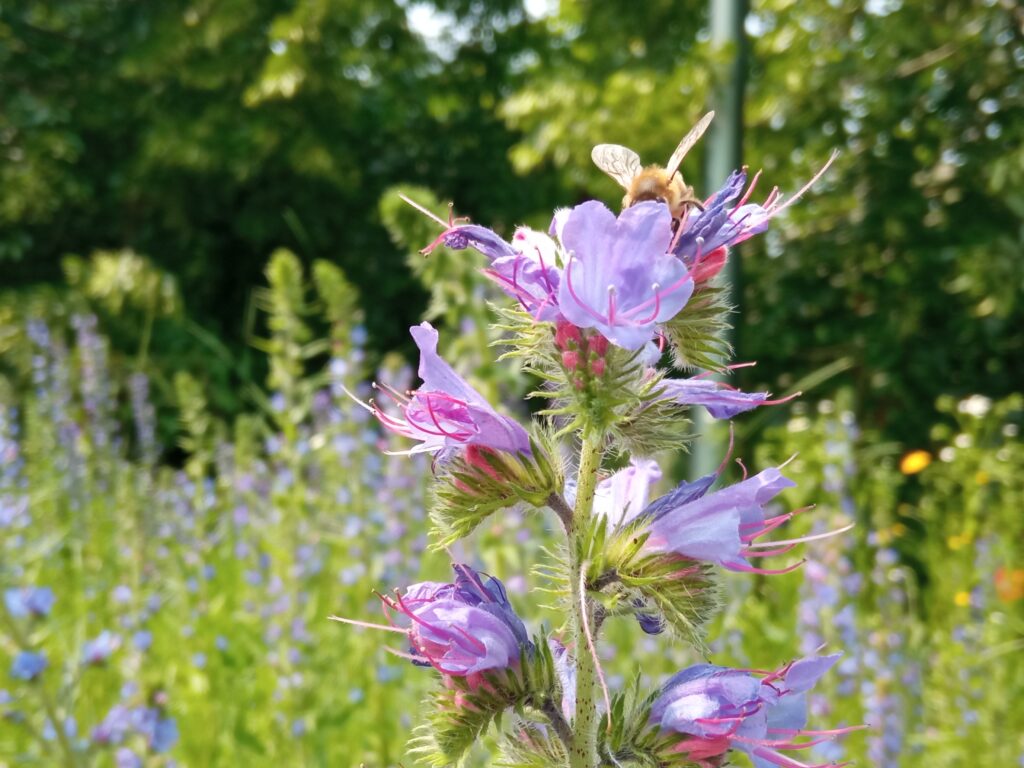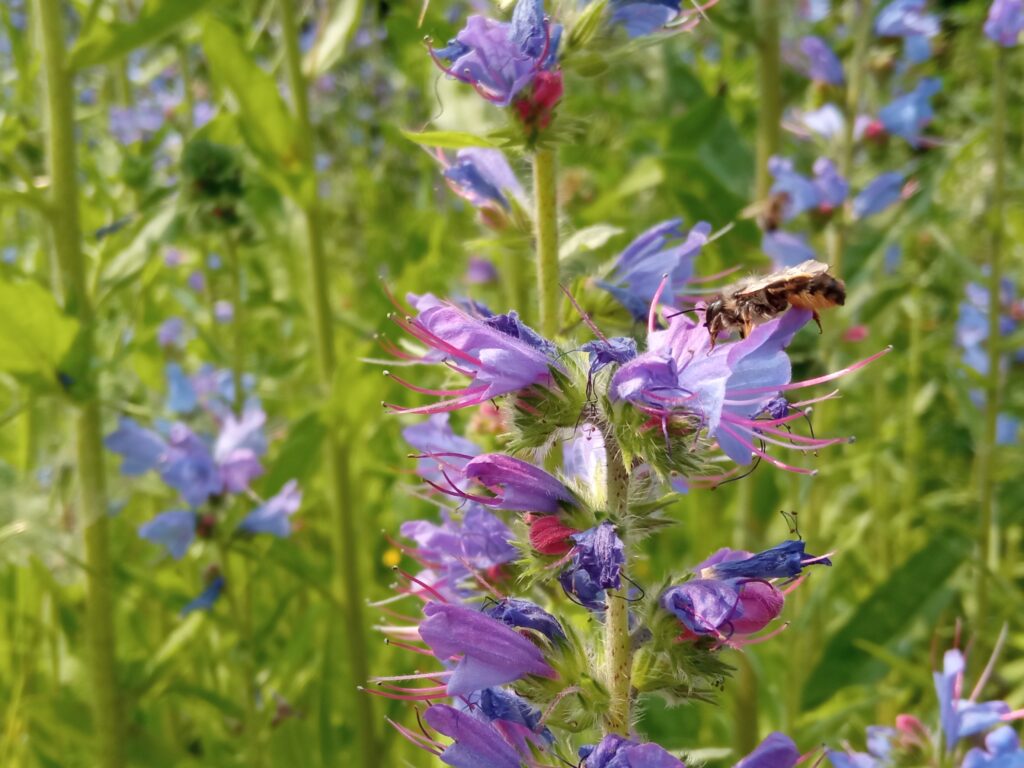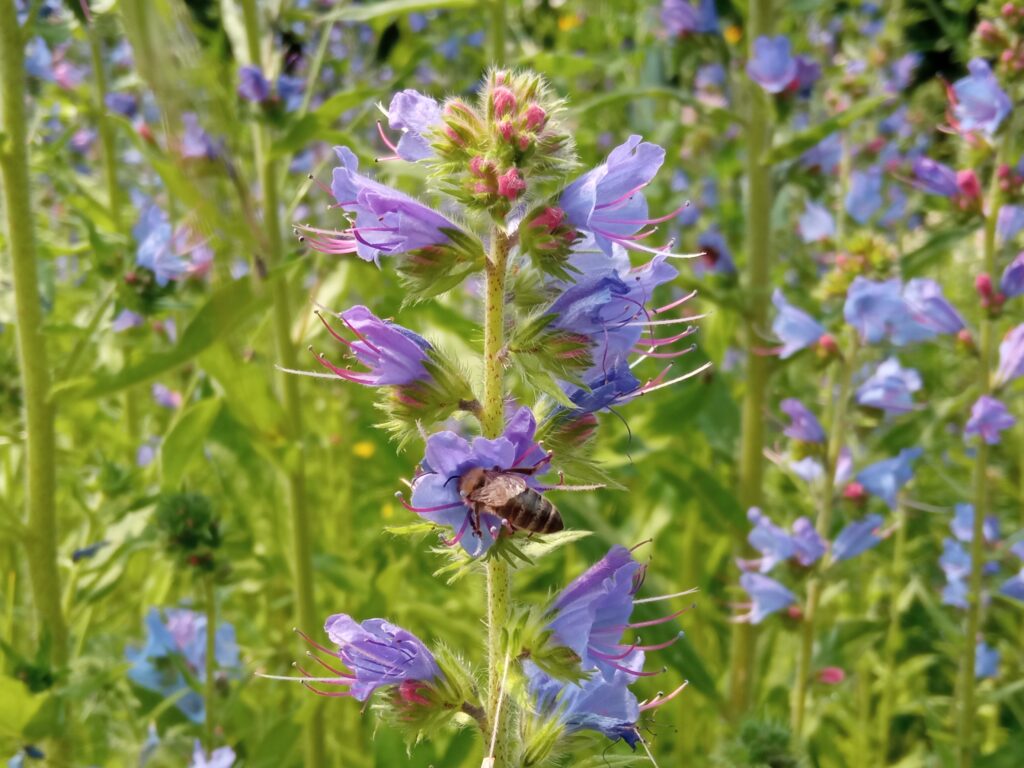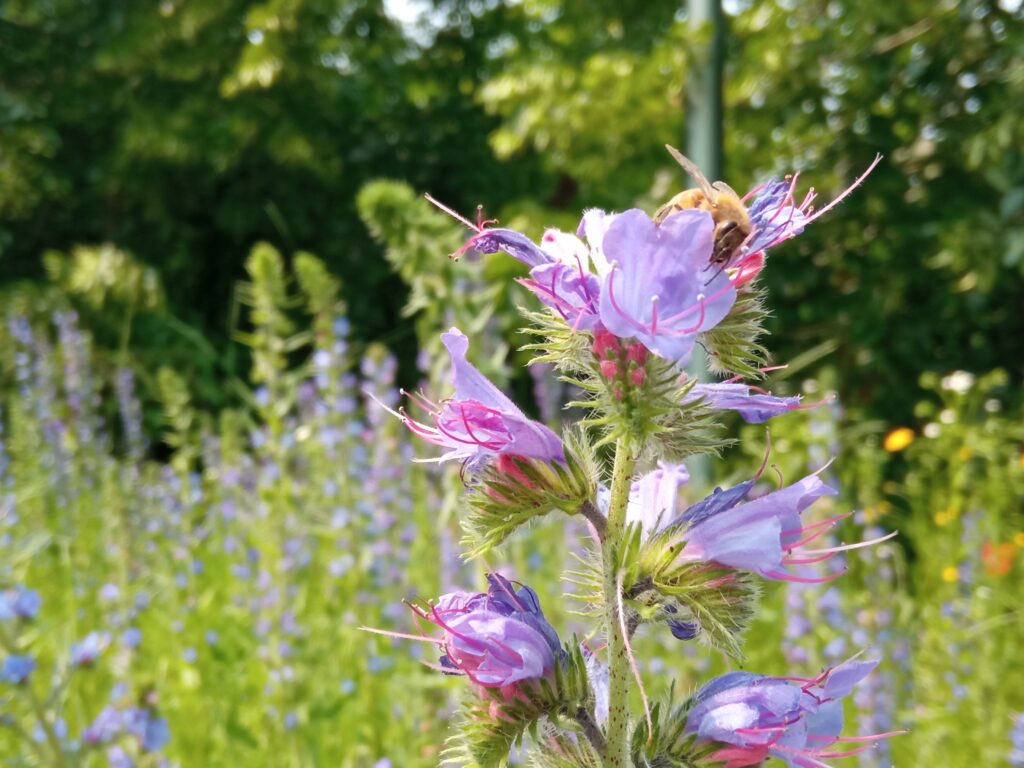Honey bees are probably the most important pollinators on Earth. They play an important role both in natural habitats and in agriculture. Unfortunately, their numbers are declining significantly. The decline in pollinator populations, not just honey bees, is believed to be due to a variety of factors. These factors include:
- Climate change
- Habitat loss
- Increasing susceptibility to parasites and diseases
- Use of pesticides.
Neonicotinoids are the most widely used insecticides worldwide despite their well-documented sublethal effects on beneficial insects. “Neonicotinoids are highly efficacious insecticides however they lack specificity, affecting both target pest species such as aphids and non-target beneficial insects, such as bees” (Tasman, K., Hidalgo, S., Zhu, B. et al.)
Neonicotinoid pesticides are agonists of insect nicotinic cholinergic receptors. This receptor signaling is responsible for memory, circadian rhythm and sleep in many insects, including honey bees and other pollinators. Studies show that the consumption of neonicotinoids by bees over several days leads to the accumulation of these substances in the bee’s brain.
The effect of this accumulation is the disruption of the circadian rhythm in many bee individuals. In other individuals, which remain rhythmic, shifts the timing of behavioral circadian rhythms and impairs sleep. “Neonicotinoids disrupt honey bee circadian rhythms and sleep, likely by aberrant stimulation of clock neurons, to potentially impair honey bee navigation, time-memory, and social communication” (Tackenberg, M.C., Giannoni-Guzmán, M.A., Sanchez-Perez, E. et al.). Neonicotinoids also stimulate wake-promoting clock neurons in the brains of other beneficial insects.
Honey bees are highly dependent on biological clocks. Research suggests that they regulate not only sleep but also key behaviors such as time-memory for food sources, foraging orientation and navigation. This means that learning and memory processes are significantly impaired by bees’ exposure to neonicotinoids. All this leads to reduced survival of the honey bee hives.
Currently, neonicotinoids are mostly banned in European Union countries, although there are exceptions to this rule. They are still widely used worldwide. New lines of research may suggest possible ways to limit their disruptive impact.
Tackenberg, M.C., Giannoni-Guzmán, M.A., Sanchez-Perez, E. et al. “Neonicotinoids disrupt circadian rhythms and sleep in honey bees”.
Tasman, K., Hidalgo, S., Zhu, B. et al. “Neonicotinoids disrupt memory, circadian behaviour and sleep”.






